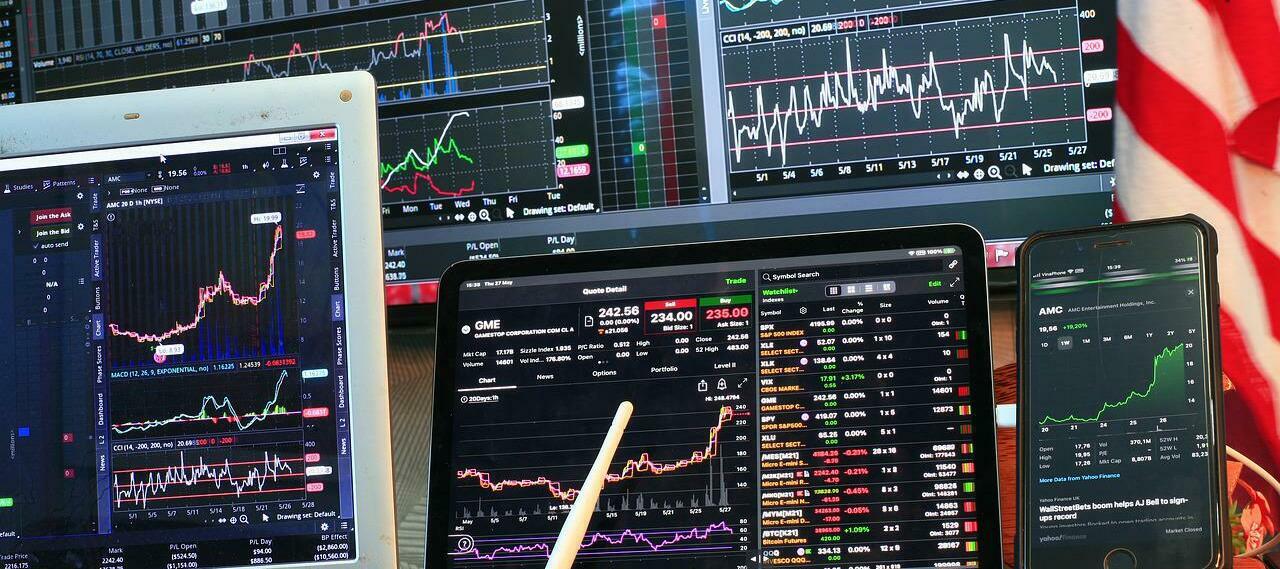
Stock futures sink as volatility grips markets
U.S. stock futures fell Monday morning to extend last week's losses, as investors looked ahead to more data this week on inflation and earnings to gauge the strength of the economy and corporate profits as the Federal Reserve continues to tighten monetary policy.
Contracts on the S&P 500 dropped more than 2% before market open. This added to losses after the index posted a fifth straight weekly decline last week. Nasdaq futures sank by another 2.7% during pre-market trading, and Dow futures fell by more than 500 points.
Investors this week are awaiting more data on the state of inflation in the U.S., which will help show how much more aggressive the Fed many need to be in order to rein in elevated price pressures. Wednesday's Consumer Price Index (CPI) and Thursday's Producer Price Index (PPI) for April are expected to show a deceleration in price increases, suggesting March may have been the peak in the rate of price increases across the economy.
This data will come in the wake of the Fed's latest monetary policy decision and press conference from Federal Reserve Chair Jerome Powell, which was met with heightened volatility among risk assets. Stocks spiked and then slid, and Treasury yields marched higher following the monetary policy decision, as investors appraised whether the tools at the central bank's disposal will be sufficient to keep inflation from becoming further entrenched while preserving economic growth.
"We knew the Fed was going to hike rates 50 basis points — it was the most telegraphed hike in the history of mankind. But the markets sold off into it. And then they finally did it and it's like, okay, it's done," Eric Diton, The Wealth Alliance president and managing director, told Yahoo Finance Live on Friday. "And so you got a lot of short covering and you got a big rally."

"That was not the real deal. The real deal was what followed ... and that is that there's a tremendous amount of uncertainty out there," he added. "Yes, we know the Fed's going to hike. How many times they're going to hike? There's a huge disparity between where rates are and where the inflation rate is. Is the Fed going to have to get up to 6% or 7%, or is inflation going to come down, they're going to meet in the middle? That uncertainty is one of the big factors that's driving this market to continue to come down."
Other concerns to economic growth have also abounded recently, as Russia's war in Ukraine and China's renewed virus-related lockdowns stoked concerns over further persistent supply chain disruptions. Many strategists agreed that the next moves in the market would be driven by Fed's response to inflation amid this backdrop.
"Looking forward, the path of the market will depend on the Fed's battle against inflation," David Kostin, Goldman Sachs chief U.S. equity strategist, wrote in a note. "In our base case, the negative impact on valuations from higher real rates will be partially offset by a narrowing yield gap. If recession risk rises, interest rates may fall but not by enough to prevent equity multiple sand share prices from falling further."
Meanwhile, earnings season will continue this week with major names including Disney (DIS), Peloton (PTON) and Rivian Automotive (RIVN) reporting results. So far, 85% of S&P 500 components have reported actual results, according to FactSet. And as of Friday, the expected earnings growth rate for the S&P 500 was 9.1%, which, if maintained, would represent the slowest increase for the index since the fourth quarter of 2020 and fall below its average five-year growth rate of 15.0%.
© 2022 LeackStat.com
